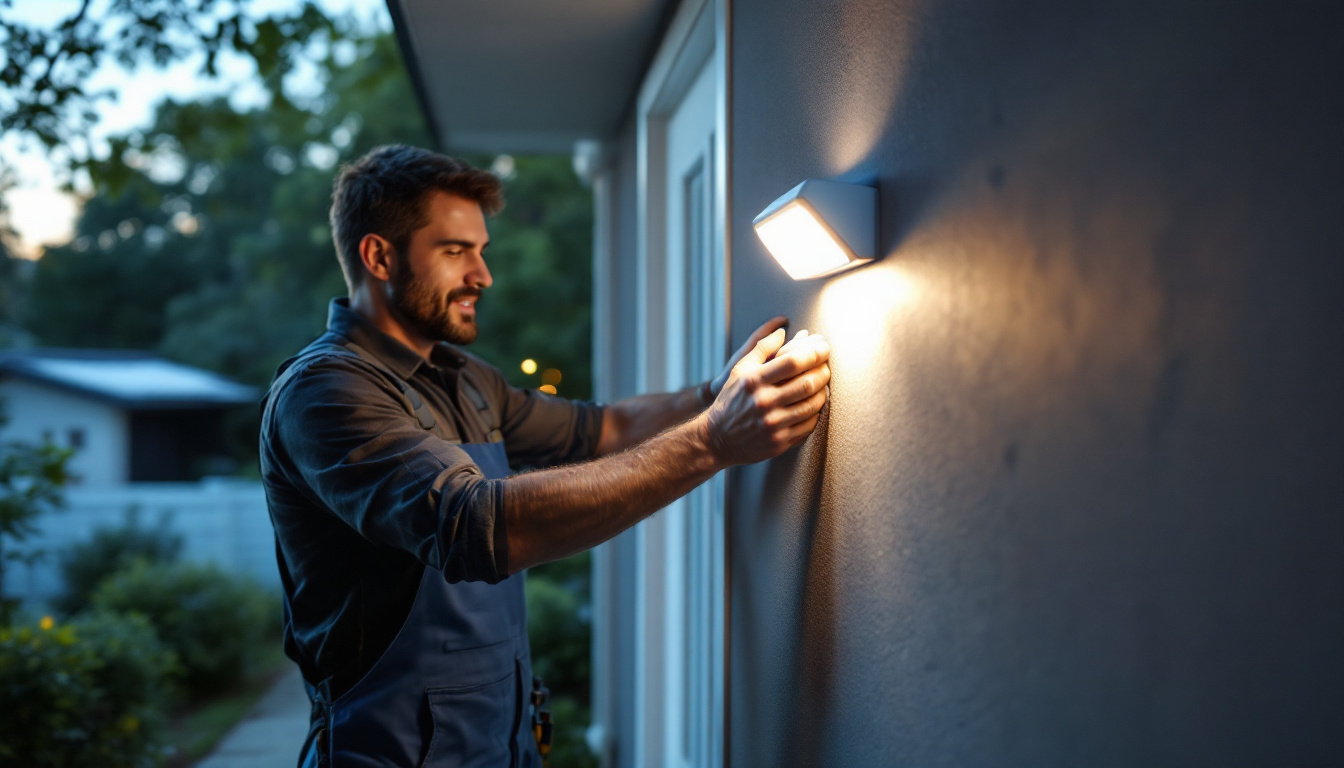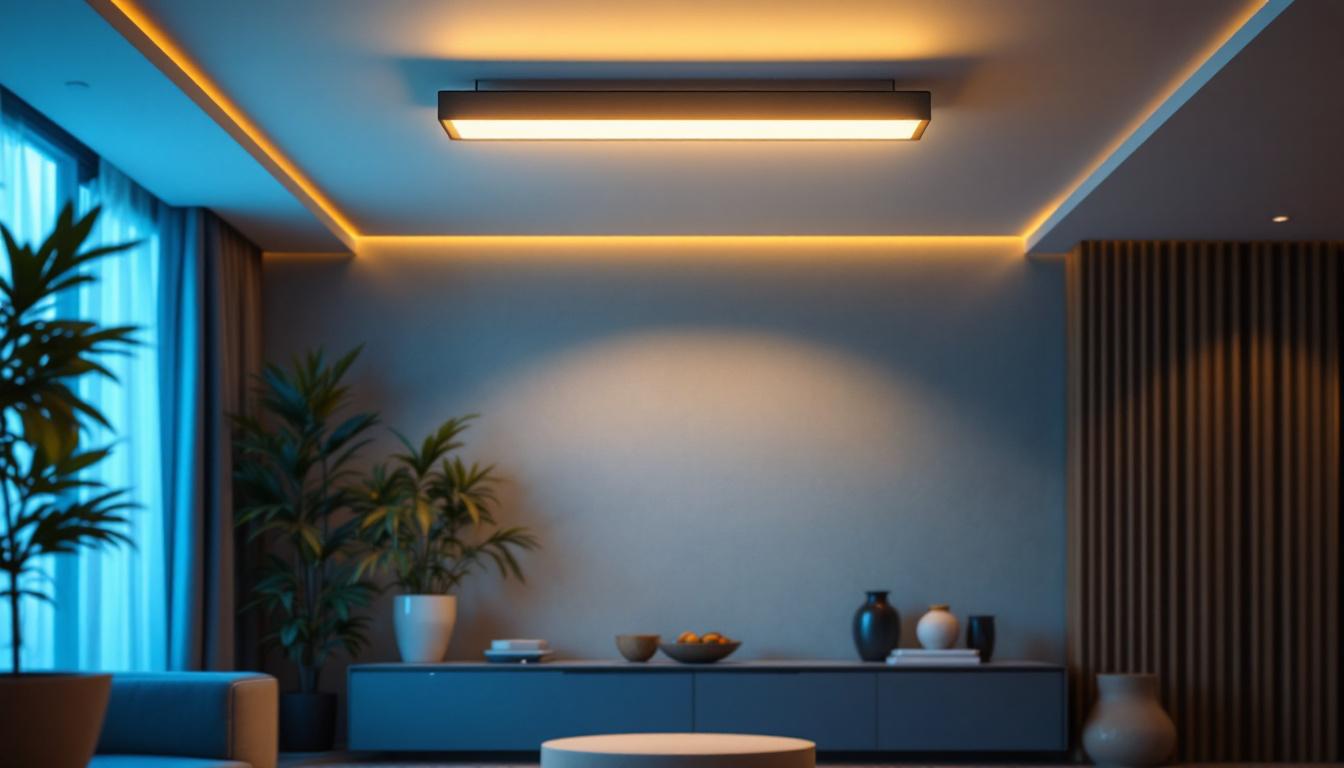
In the ever-evolving world of lighting design and installation, professionals in the field must stay updated on the latest trends, technologies, and techniques. For lighting contractors, understanding the nuances of the industry can set them apart from the competition. This article aims to provide valuable insights and practical tips that can enhance the effectiveness and efficiency of lighting contractors in their projects.
Before diving into advanced techniques, it is essential for lighting contractors to grasp the fundamental principles of lighting design. This foundational knowledge not only aids in creating aesthetically pleasing environments but also ensures functionality and energy efficiency. A well-designed lighting scheme can transform a mundane space into an inviting and vibrant one, influencing the mood and behavior of its occupants. Therefore, understanding the interplay between light and space is crucial for any contractor aiming to deliver exceptional results.
Lighting can be broadly categorized into three types: ambient, task, and accent lighting. Ambient lighting provides overall illumination, task lighting focuses on specific areas for activities like reading or cooking, and accent lighting highlights particular features or objects. Understanding these categories helps contractors select the appropriate lighting solutions for various settings. For instance, in a home office, a combination of ambient and task lighting can create a comfortable workspace that minimizes eye strain while enhancing productivity. Similarly, in retail environments, accent lighting can draw attention to merchandise, creating focal points that entice customers and enhance their shopping experience.
Color temperature, measured in Kelvin (K), plays a crucial role in how a space feels. Warm light (around 2700K) creates a cozy atmosphere, while cooler light (above 4000K) can enhance productivity. Additionally, the Color Rendering Index (CRI) measures how accurately a light source displays colors. A higher CRI is essential in settings like art galleries or retail spaces, where color accuracy is critical. Furthermore, understanding the psychological effects of color temperature can help contractors tailor lighting designs to evoke specific emotions. For example, cooler temperatures might be more suitable for a modern kitchen, promoting alertness and focus, while warmer tones could be ideal for a restaurant setting, fostering a relaxed and inviting ambiance.
Effective lighting design requires careful planning of layout and spacing. Contractors should consider the dimensions of the space, the purpose of the lighting, and the desired ambiance. A well-thought-out layout not only improves aesthetics but also ensures adequate illumination without creating harsh shadows or overly bright spots. Additionally, the placement of fixtures should take into account the natural light sources in the room, as well as the activities that will take place in the space. For example, in a living room, layering different types of lighting—such as floor lamps, wall sconces, and recessed lights—can create a dynamic environment that adapts to various occasions, from casual gatherings to movie nights. Moreover, incorporating dimmers can provide flexibility, allowing users to adjust the light intensity according to their needs and preferences, further enhancing the overall experience of the space.
With advancements in technology, lighting contractors have access to innovative tools and solutions that can enhance their projects. Embracing these technologies can lead to improved efficiency and client satisfaction. As the industry evolves, staying abreast of these developments not only empowers contractors but also positions them as experts in a rapidly changing market.
Smart lighting systems allow for remote control and automation of lighting features. These systems can be programmed to adjust brightness and color temperature based on time of day or occupancy, providing both convenience and energy savings. For instance, integrating smart lighting with home automation systems can create an immersive environment that adapts to the homeowner’s lifestyle, whether it’s setting a cozy mood for movie night or brightening up the space for a productive workday. Educating clients about the benefits of smart lighting can set contractors apart as forward-thinking professionals, capable of delivering not just illumination but also enhanced living experiences.
Light Emitting Diodes (LEDs) have revolutionized the lighting industry due to their energy efficiency and longevity. Contractors should stay informed about the latest LED products and their applications. With advancements such as tunable white LEDs and color-changing options, the versatility of LEDs allows for creative and dynamic lighting designs that can transform any space. Offering clients LED solutions can significantly reduce energy costs and maintenance needs, making it an attractive option for both residential and commercial projects. Furthermore, the environmental benefits of LEDs, including reduced carbon footprints, resonate well with eco-conscious consumers, providing contractors with an additional selling point.
Implementing advanced lighting control systems can enhance the functionality of a lighting design. These systems allow for zoning, dimming, and scene setting, enabling clients to customize their lighting experience. For example, in a commercial setting, different areas can be programmed to have distinct lighting schemes that cater to various activities, such as bright lights for workspaces and softer lighting for relaxation areas. Understanding the various control options available, from mobile apps to voice-activated systems, can help contractors provide tailored solutions that meet specific client needs. Additionally, integrating these systems with other smart home technologies can create a seamless and cohesive environment, further elevating the client’s experience and satisfaction.
Successful lighting contractors understand the importance of clear and effective communication with their clients. Building a strong rapport can lead to repeat business and referrals, which are vital for long-term success.
Every project begins with understanding the client’s vision and requirements. Lighting contractors should engage in active listening during initial consultations, asking open-ended questions to uncover the client’s preferences and expectations. This approach not only helps in delivering a satisfactory outcome but also fosters trust and collaboration.
Clients often rely on the expertise of lighting contractors to guide them through the selection process. Providing insights on the latest trends, energy-efficient options, and design principles can help clients make informed decisions. Being knowledgeable and approachable can position contractors as trusted advisors in the eyes of their clients.
Throughout the project, maintaining regular communication is crucial. Providing updates on progress, addressing concerns promptly, and being available for questions can enhance the client experience. After project completion, following up to ensure satisfaction can lead to positive reviews and future referrals.
Safety should always be a top priority for lighting contractors. Adhering to regulations and standards ensures not only the safety of the installation but also the satisfaction of the client.
Each region has specific codes and regulations governing electrical installations, including lighting. Contractors must familiarize themselves with local codes to ensure compliance and avoid potential legal issues. Staying updated on changes in regulations is also essential for maintaining a reputable business.
Proper installation techniques are vital for ensuring the longevity and safety of lighting systems. Contractors should follow manufacturer guidelines and best practices to avoid issues such as overheating or electrical failures. Training and ongoing education can help contractors stay proficient in safe installation methods.
Investing in quality materials not only enhances the performance of lighting systems but also reduces the likelihood of future problems. Contractors should source materials from reputable suppliers and be transparent with clients about the importance of quality in their projects. This approach can lead to more durable installations and increased client satisfaction.
The lighting industry is constantly evolving, with new trends and technologies emerging regularly. Staying informed about these changes can provide contractors with a competitive edge.
Attending trade shows, conferences, and workshops can offer valuable networking opportunities and insights into the latest industry trends. These events often feature demonstrations of new products and technologies, allowing contractors to explore innovative solutions that can benefit their work.
Online forums and social media groups dedicated to lighting professionals can be excellent resources for sharing knowledge and experiences. Engaging with these communities allows contractors to learn from peers, ask questions, and stay informed about industry developments. This collaborative approach can foster growth and innovation within the field.
Investing in continuous education is essential for lighting contractors looking to advance their skills and knowledge. Many organizations offer certification programs and training courses that cover various aspects of lighting design, installation, and technology. By committing to lifelong learning, contractors can ensure they remain relevant and competitive in the industry.
A well-curated portfolio is a powerful tool for lighting contractors. It showcases their expertise and can significantly influence potential clients’ decisions.
Contractors should document their projects meticulously, capturing high-quality images and detailed descriptions of each installation. Highlighting unique challenges and solutions can demonstrate problem-solving skills and creativity, which are attractive qualities to prospective clients.
Incorporating client testimonials and case studies into a portfolio can add credibility and provide social proof of a contractor’s capabilities. Positive feedback from satisfied clients can reassure potential customers and encourage them to choose a contractor for their lighting needs.
In today’s digital age, having a robust online presence is crucial for attracting new clients. Contractors should consider creating a professional website and utilizing social media platforms to showcase their work. Engaging content, such as blog posts or videos, can further enhance visibility and establish authority in the field.
Lighting contractors play a vital role in shaping the environments in which people live and work. By mastering the fundamentals of lighting design, embracing technology, communicating effectively with clients, prioritizing safety, and staying informed about industry trends, contractors can elevate their services and build a successful business. A commitment to quality, continuous education, and a strong portfolio will not only enhance client satisfaction but also pave the way for future opportunities in the dynamic world of lighting.
Ready to take your lighting projects to the next level? At LumenWholesale, we provide lighting contractors like you with the highest quality, spec-grade lighting products at prices that can’t be beaten. Say goodbye to local distributor markups and hello to a vast selection of reliable, high-performance lighting that meets the most rigorous industry standards. With the convenience of free shipping on bulk orders, you can trust that you’re getting premium lighting solutions at the best value, with no hidden fees. Elevate your service offerings and delight your clients by choosing Wholesale Lighting at the Best Value from LumenWholesale. Your success is our business.

Discover the essential guide for lighting contractors on flush mounted lights.

Discover the essential insights lighting contractors need with our comprehensive guide to UV light sterilizers.

Discover how motion sensor LED lights can revolutionize the workflow for lighting contractors, offering significant time and cost savings.

Discover the essential guide for lighting contractors on selecting the perfect linear flush mount lights.